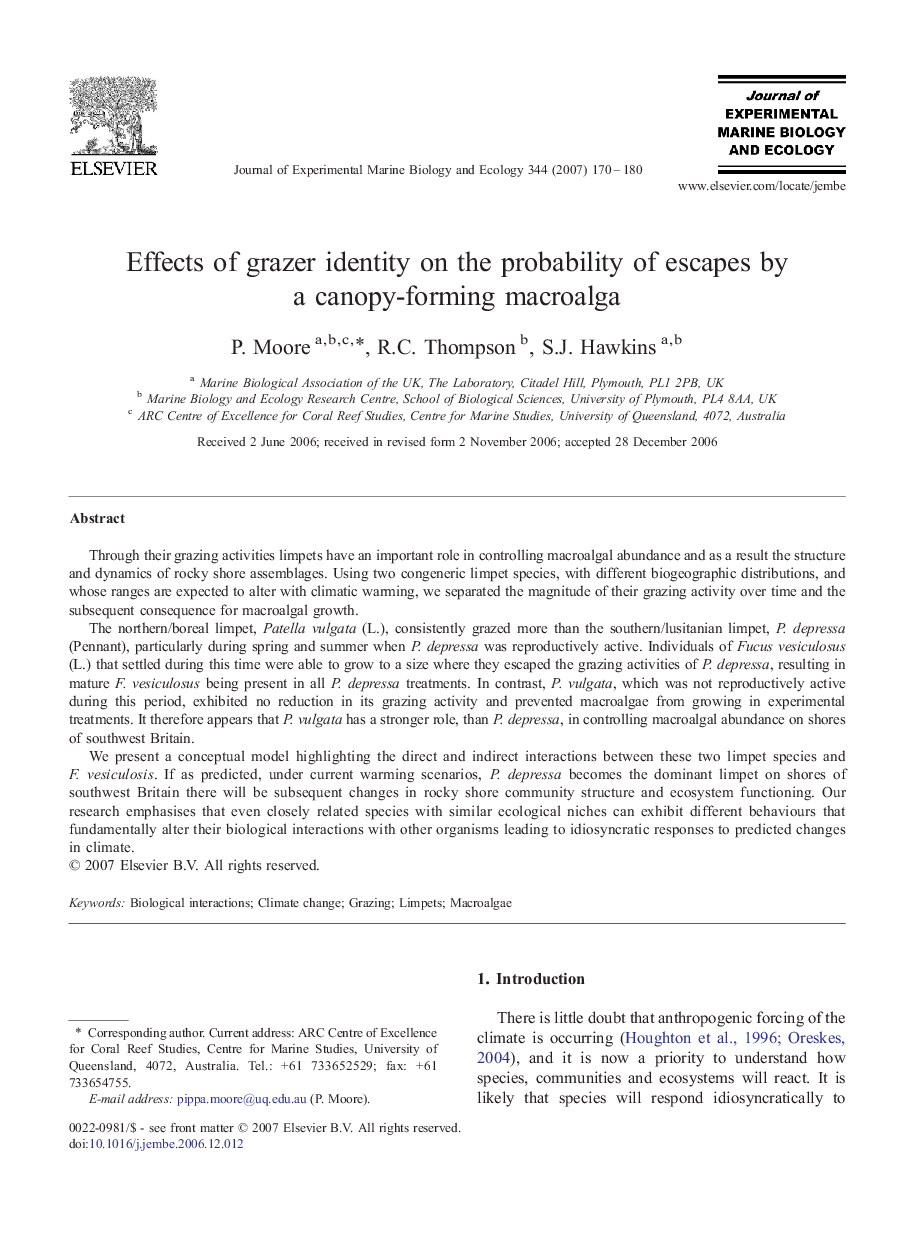| Article ID | Journal | Published Year | Pages | File Type |
|---|---|---|---|---|
| 4397749 | Journal of Experimental Marine Biology and Ecology | 2007 | 11 Pages |
Through their grazing activities limpets have an important role in controlling macroalgal abundance and as a result the structure and dynamics of rocky shore assemblages. Using two congeneric limpet species, with different biogeographic distributions, and whose ranges are expected to alter with climatic warming, we separated the magnitude of their grazing activity over time and the subsequent consequence for macroalgal growth.The northern/boreal limpet, Patella vulgata (L.), consistently grazed more than the southern/lusitanian limpet, P. depressa (Pennant), particularly during spring and summer when P. depressa was reproductively active. Individuals of Fucus vesiculosus (L.) that settled during this time were able to grow to a size where they escaped the grazing activities of P. depressa, resulting in mature F. vesiculosus being present in all P. depressa treatments. In contrast, P. vulgata, which was not reproductively active during this period, exhibited no reduction in its grazing activity and prevented macroalgae from growing in experimental treatments. It therefore appears that P. vulgata has a stronger role, than P. depressa, in controlling macroalgal abundance on shores of southwest Britain.We present a conceptual model highlighting the direct and indirect interactions between these two limpet species and F. vesiculosis. If as predicted, under current warming scenarios, P. depressa becomes the dominant limpet on shores of southwest Britain there will be subsequent changes in rocky shore community structure and ecosystem functioning. Our research emphasises that even closely related species with similar ecological niches can exhibit different behaviours that fundamentally alter their biological interactions with other organisms leading to idiosyncratic responses to predicted changes in climate.
